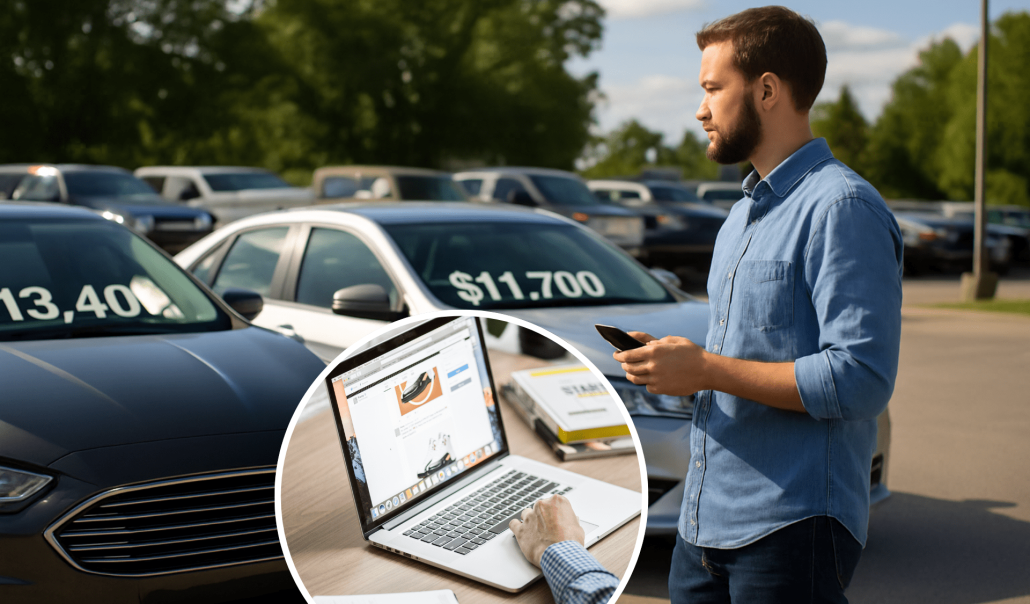How Vehicle Depreciation Data Can Save You Thousands

Buying a car is a major financial decision—but most shoppers overlook one of the biggest costs: depreciation. According to data from iSeeCars, the average new car loses nearly 40% of its value in the first five years. That’s thousands of dollars in silent loss, just for owning the wrong vehicle at the wrong time.
Luckily, vehicle depreciation data can help. With access to real-time resale trends and historical price drops, you can choose smarter and hold more value over time. In this post, we’ll show you how to use depreciation data to avoid financial pitfalls and make better decisions in the used car market.
Why Depreciation Matters More Than You Think
Many car buyers focus on the sticker price, loan terms, or fuel efficiency. But depreciation is often the biggest long-term cost of vehicle ownership. It quietly erodes your investment, even if the car runs perfectly for years.
For example, two vehicles may cost $25,000 new. But if one is worth $15,000 after five years and the other just $9,000, you’ve lost $6,000 more—without ever seeing it on a bill. That’s why understanding depreciation trends is critical, especially in a fluctuating market.
What Affects How Fast a Car Depreciates?
Not all vehicles lose value at the same rate. These are some of the key factors that influence depreciation:
- Brand and model reputation: Popular and reliable vehicles tend to retain value longer.
- Mileage: The more a car is driven, the faster it usually drops in value.
- Vehicle type: SUVs and trucks often hold their value better than sedans or luxury cars.
- Market demand: Regional or seasonal demand shifts can accelerate depreciation.
- Fuel type and efficiency: Hybrids and EVs may depreciate faster or slower depending on current trends and incentives.
Keeping these factors in mind helps buyers choose vehicles that won’t sink in value too quickly—saving thousands over time.
How to Use Vehicle Depreciation Data When Buying
Access to depreciation insights transforms the way you shop. Here’s how to use vehicle depreciation data effectively:
- Compare models side by side: See how similar cars retain value differently over time.
- Spot high-value used vehicles: Some models depreciate quickly in the first year, then level off—making them a smart buy at 2–3 years old.
- Avoid rapid-loss vehicles: Skip models with high 5-year depreciation rates or frequent price drops.
- Use resale projections: Estimate what a vehicle will be worth in 3–5 years based on real-world trends.
This data gives you an edge at the negotiation table and helps you plan for future ownership costs.
Where to Find Trusted Depreciation Insights
Whether you’re an individual buyer or a business user, you don’t have to calculate vehicle depreciation manually. Tools like VinAudit make it easy to access current and historical value estimates based on real market data.
For individual buyers: Our car value calculator shows how much similar vehicles have sold for in your area—highlighting below market, average, and above market pricing. You’ll also see 5-year depreciation trends as part of our full vehicle history report.
For businesses and platforms: VinAudit’s Market Value API delivers detailed pricing data at scale, including:
- Real-time resale estimates by VIN, year/make/model, and region
- 5-year depreciation projections to support smarter purchasing and remarketing
- Confidence intervals and pricing curves derived from real transactions
You can explore our full range of automotive data or request a demo to see how this insight can support your inventory decisions, product development, or purchase planning.
Drive Smarter with Data-Driven Car Buying
Depreciation doesn’t have to be an invisible cost. With the right data, you can buy a car that retains value—and avoid one that quietly drains your wallet.
Use depreciation trends to your advantage, and you might save $2,000–$7,000 over the life of your next vehicle. For anyone serious about smart car shopping, real-time automotive data is the best place to start.
More Questions Answered
Which cars have the slowest depreciation?
When is the best time to buy a used car for value retention?
How accurate are depreciation projections?
What other costs should I consider when buying a car?


